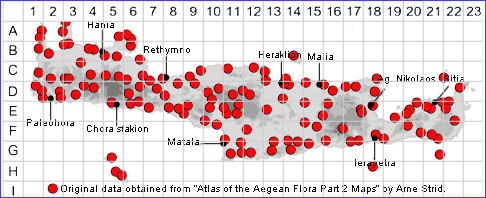
SPECIES DESCRIPTION
EUPHORBIA PEPLUS
Family and Genus:- See- EUPHORBIACEAE/Subgen. ESULA/Sect.
Common Names:- Petty spurge
Homotypic Synonyms:- Esula peplus, Euphorbion peplum, Galarhoeus
peplus, Keraselma peplus, Tithymalus peplus.
Meaning:- Euphorbia (L) For Euphorbus, physician to the King of Mauritania.
Peplus (Gr) A name used by the Greek physician and botanist.
Dioscorides.
General description:- Glabrous, annual.
Stems;-
1) Up to 40 cm, with 2 or more branches from the base and with 0-3 axillary rays.
Leaves:-
1) Cauline, 5-25 x 3-15 mm, ovate, almost round or obovate, entire, petiole, up to 8
mm.
2) Ray-leaves, like the cauline, but with shorter petioles.
3) Raylet-leaves, smaller, slightly obliquely ovate.
Flowers:-
1) Rays, 3, up to 5 times dichotomous.
2) Glands, with 2 filiform, horns.
Fruit:-
1) Capsule, 2 x 2 mm, shallowly sulcate lengthwise, smooth, each valve with two
dorsal ridges.
2) Seeds, 1·1-1·4mm, ovoid-hexagonal, sulcate, lengthwise ventrally and pitted
dorsally, pale grey, darker in the depressions.
Key features:-
1) Leaves, obovate.
2) Seeds, pitted, sulcate or both.
3) Capsule, with 2 ridges on each valve.
Habitat:- Cultivated fields, gardens, orchards, roadsides and macchie. 0-800 m.
(occasionally to 1700 m. in dolines).
Distribution:- Widespread and common throughout the Mediterranean. Widespread
and common on Crete.
Flowering time:- Mar-May and sporadically at other times.
Photos by:- Steve Lenton
